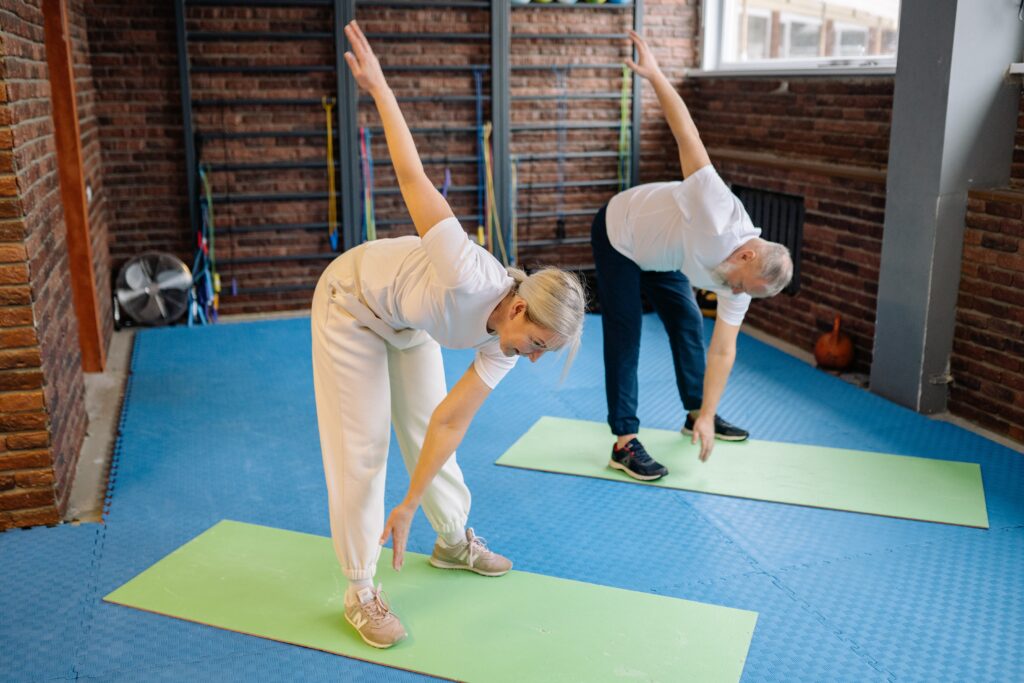Health Benefits of Staying Active for People with AD/D Alzheimer's and Other Dementias
Someone in the world develops dementia every 3 seconds. There are over 55 million people worldwide living with dementia in 2020.

![]()
This number will almost double every 20 years, reaching 78 million in 2030 and 139 million in 2050
Studies show that if you live with a long-term health condition such as dementia, you are twice as likely to be inactive. Studies show that seniors are the least likely to engage in an active lifestyle.
However, even small amounts of regular physical activity can have a wide range of positive effects on your mental and physical health and well-being and your general health and happiness.

Research has proved that being active is beneficial to both our mental and physical health. Daily exercise can help manage many health conditions and reduce the severity and impact of some symptoms.
Staying Active Improves Mental Health
An active lifestyle can increase your energy levels, relieve tension, enhance your immune system, and improve sleep habits. In addition, staying active can help you keep your independence, cut down on loneliness and isolation, and improve your self-esteem and confidence.
Regular exercise can also help you deal with stress better and lessen your anxiety and depression symptoms. Physical activity generates a range of changes in the brain. For example, studies show that exercise can restructure the brain, encouraging the creation of neural cells and connections and generating new activity patterns that help you feel calm and composed.
Finally, people who exercise say that exercise improves their mood by making them happier and more optimistic. Exercise raises the levels of the neurochemical’s dopamine and endorphins in our blood, which protect the brain similarly to what antidepressant medicine does.
Some additional benefits of regular physical activity involve:
- The opportunity to connect with nature
- Prevention of health complications associated with inactivity
- Improved strength and flexibility
- Increased resilience
- A greater sense of control over your life
An Active Lifestyle Helps Maintain Cognitive Function
An active lifestyle can improve your attention, thinking, and memory, which can help you avoid or manage many long-term health problems.
Regular exercise can protect your brain from Alzheimer’s and other dementias by boosting its plasticity.
Brain plasticity involves its ability to build new neural connections while maintaining the old ones. Therefore, regular cognitive training could make the brain more flexible, lowering the risk of dementia by improving thinking skills, memory, reasoning, and judgment.
Additionally, studies show that cognitive training can increase the size of the hippocampus, the area of the brain that is connected with memory creation.
Brain exercises involve stimulating the brain and cognitive function by playing memory games, completing puzzles, learning new topics, playing chess and sudoku, practicing visualization and meditation, etc.
Also, physical fitness helps the brain stay active. Regardless of your fitness level or age, physical activity such as walking, jogging, yoga, or swimming may be suitable for your brain.
Finally, social interaction and stimulation may slow down the development of your symptoms while also making your life more enjoyable and giving you more help.
How to Incorporate an Active Lifestyle into Your Daily Routine
Incorporating exercise into your routine can help you maintain your strength and balance and help manage your condition. Balance and flexibility exercises can help you keep your muscle strength, balance, and coordination as you get older, which can help ease pain, keep you more independent, and lower your risk of getting hurt.
Set Reasonable Goals
The
type of activity that can benefit you the most will depend on your health, age,
and fitness level. So, be realistic about how much exercise you can handle at a
time.
Start
small with your daily fitness program. For example, a 10-minute brisk walk or
run, sitting exercise, or yoga may be as helpful as an hour-long workout. Break
the activity into smaller, simple steps you can easily follow. Gradually
increase the amount of time you exercise to what feels right for you; don’t
push yourself too hard.
Make Positive Connections

Connect your workout experience to something pleasurable, whether it’s socializing with other people, spending time in nature, or listening to your favorite music.
There is a lot of evidence that music can help you relax and improve your brain function. You can add music to your exercise to help. Studies suggest that listening to music improves verbal memory, enhances concentration, and keeps you alert.
Also, listening to relaxing music can reduce pain, improve your sleep quality, and help with emotional expression.
Make Sure You Stay Hydrated

Your condition may cause you to forget to drink or eat. Or you may lose part of your sense of thirst with age. However, staying hydrated is essential for your health, so make sure you drink enough water every day, especially before, during, and after exercise.
Water helps you digest food and absorb nutrients from it. It also helps your body manage medication and get rid of unused waste.
So, don’t wait until you feel thirsty to drink water, tea, soup, milk, or juice. Instead, make sure you drink water throughout the day.
Spend Time Outside
Spending
time outside and connecting with nature offers several advantages. It can help
you feel more energized, heal from injuries faster, and reduce stress, anxiety,
and depression symptoms.
Make
plans to visit a local garden, park, or beach. Spending time outside each day
helps the absorption of vitamin D, regulating your circadian clock and
improving your sleep at night. Just make sure to wear adequate sun protection
and stay in the shade when the sun is strongest.
Find a Fitness Companion

Plan out your physical activity with your partner, a family member, or a friend to make it more enjoyable. You can also join a sports group. Participating in group sports can improve your mood and confidence and give you the chance to meet new people and get help from others.
Summary
According to research, lifestyle factors have a substantial impact on general well-being. Alzheimer’s and other types of dementia are thought to be more likely to progress if people don’t get enough physical exercise, cognitive training, and social interaction. So, staying active can help maintain good health or manage your condition.


I believe none of it. My mom was so active her whole life. She baked a lot, did tons of word search puzzles everyday, made rosaries with beads 1,000’s of them with her church. Active with her grandkids and I could go on. So all this talk about doing all these things to help prevent Dementia is out the window. My Mom has done all those things and more and this aweful,heartbreaking disease has still gotten ahold of her despite all the advise!
Bless You and your mother.
I may need your help. I tried many ways but couldn’t solve it, but after reading your article, I think you have a way to help me. I’m looking forward for your reply. Thanks.